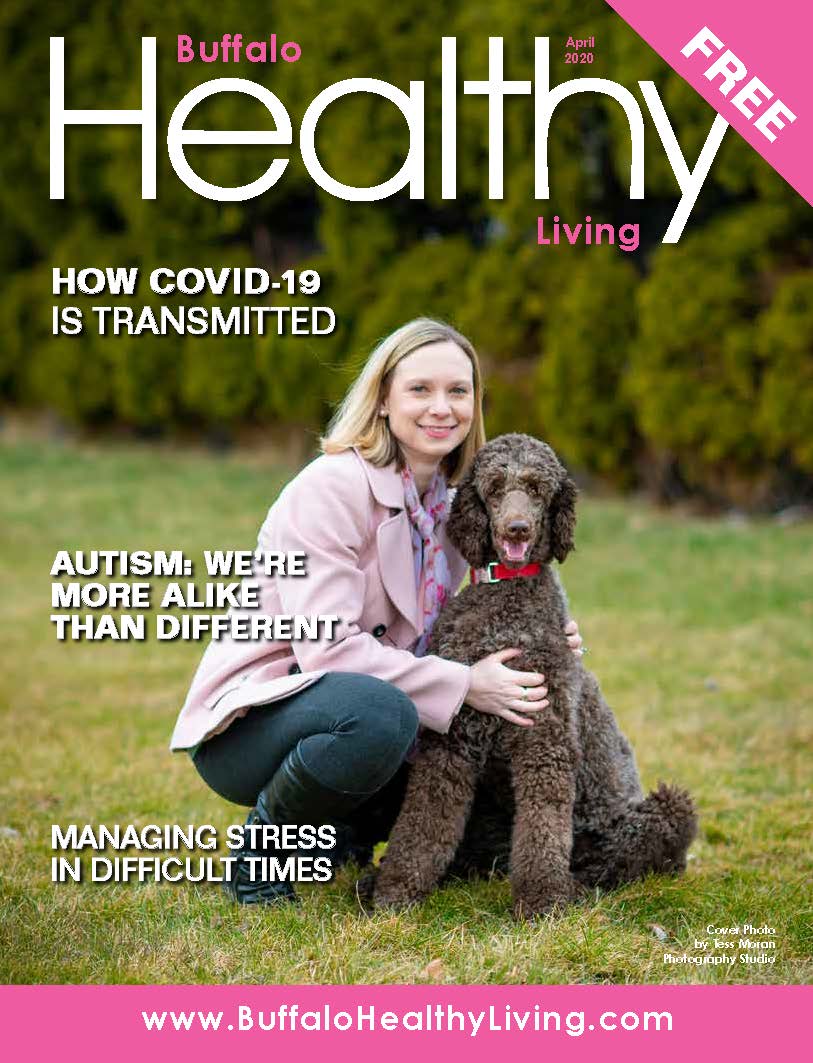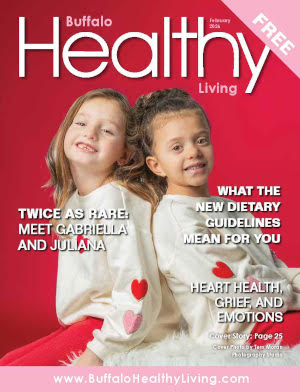Accessible Academics: Disability Changes your Life!

About Our Cover Model
by Annette Pinder
Anne Showers was born and raised in Western New York, attended Williamsville East High School and UB, hoping to become a veterinarian. Then, a series of events derailed her plans.
“During high school, I experienced all of the symptoms of an anxiety and stress disorder, but I didn’t understand what it was and how it was affecting my life. Having epilepsy also didn’t mix well with my anxiety, as anxiety and stress trigger seizures,” says Anne. So, despite needing only one more class for admission to the prestigious Cornell veterinary program, Anne reduced her course load and altered her plans. But, as the saying goes, “When one door closes, another one opens.”
Anne earned a master’s degree in Science Education and worked at a private transition program for college students with disabilities. The program no longer exists, but Anne learned a lot about this population, including what worked and what didn’t. The experience led her to become founder and Executive Director of Accessible Academics. Accessible Academics is the only educational nonprofit in New York state that offers teens and young adults with disabilities the opportunity to transition from high school to post-secondary education and independence, and also earn college credit. The program is free to students who qualify through the Office for People with Developmental Disabilities (OPPWDD) or ACCES-VR.
What makes the Accessible Academics’ model successful? Students are assigned a coach as their main point of contact who works with everyone involved in their mental, physical, emotional health, and education. Using an andragogical model of teaching, coaches partner with students to work on shared goals. Anne explains, “It’s person-first. Our Transition Coordinator works directly with the student to develop the plan and determine the services each student will need to meet their goals. Then, their Coach meets each student’s needs at a time and place that works for them.”
Most students live at home or on campus, and all are pursuing an educational or vocational goal. To date, every student that has remained with the program is on schedule to graduate or has already graduated. That’s a 100 percent success rate! Anne hopes that Accessible Academics will eventually become a model for the rest of the country. She says, “We are the only transition program approved by OPWDD to have students enroll in a school with a major degree program for credit. Our goal is to have students graduate from the program and become gainfully employed.”
Accessible Academics also participates in a Culinary Exploration Program, where students learn about life skills, food preparation, nutrition, shopping, culinary careers, and food handling. They can also work in an ADA-friendly accessible gardening program, and receive support completing a computer coding bootcamp. To keep everyone grounded, Koru Mindfulness helps with managing stress, cultivating compassion, and being nonjudgmental. Koru Mindfulness is open to the public. Everyone who has participated agrees that it is a rewarding experience. The next set of classes take place Wednesdays from 7:15 to 8:30 pm on May 6, 13, 20, and 27. Alternate arrangements will be made, if necessary, to hold these classes virtually. To register, visit www.accessibleacademics.org/services/koru.
Meanwhile, Anne never seems to rest. She is constantly researching current trends and best practices, while pursuing a doctoral degree. The focus of her PhD is on engaging young adult students, and also building a greater awareness for the difficulties students encounter early enough to prevent their academic failure. She says, “I’ve learned that disability changes your life. Having had my own college crisis, I now understand others with disabilities, and how easy it is to have your plans and goals interrupted.”
Most of all, Anne wants people to know what’s important to her students. “More than anything, they tell me that they want to be accepted, included, and able to access the same opportunities as individuals without disabilities. They want friendship and vocational opportunities, yet often find it hard to succeed in typical social settings that are often loud, crowded, and anxiety-provoking. They yearn for a more accepting and accommodating world that embraces everyone’s unique needs, gifts, and talents.”
When she isn’t working, Anne and her husband enjoy skiing, indoor climbing at CRG Buffalo, hanging out with friends and family, and healthy eating.
To learn more about Accessible Academics, try Koru Mindfulness, partner on any programming ideas, or have us speak at your school or organization, visit www.accessibleacademics.org, or call 716-492-8656, ext. 1.









